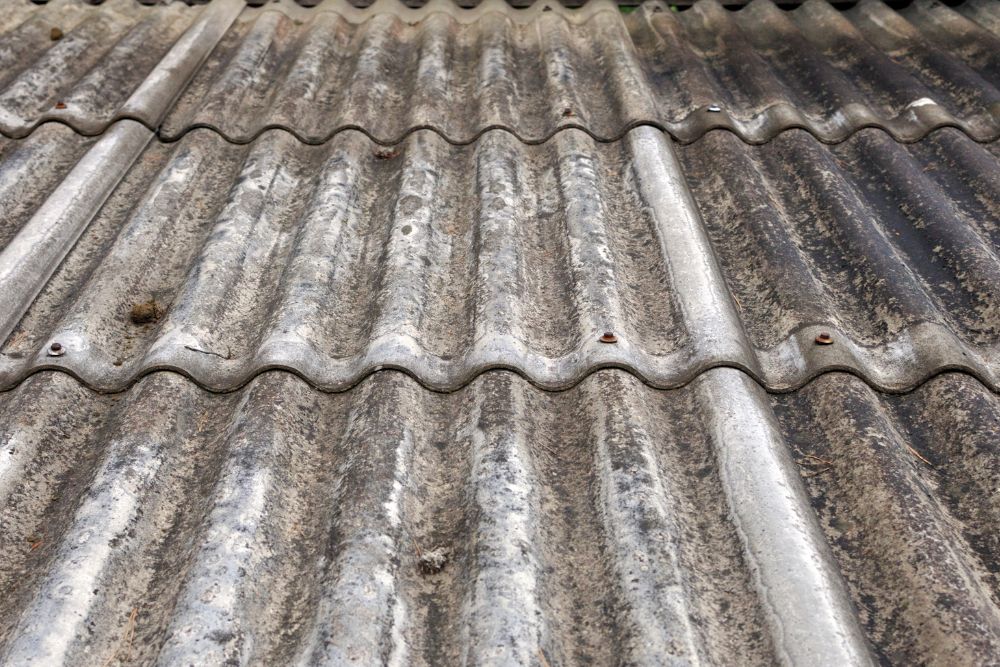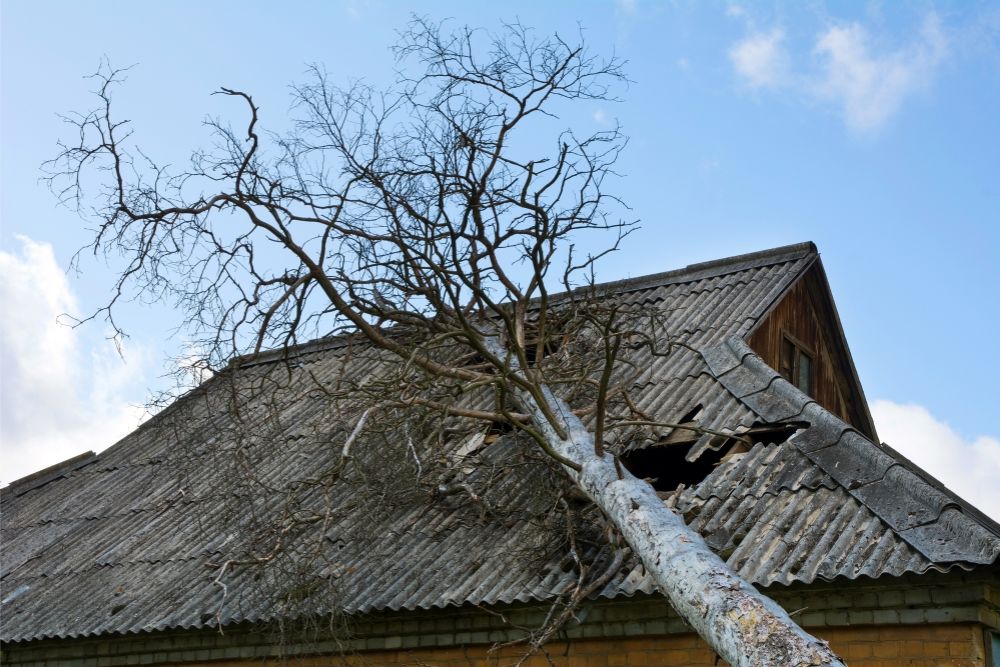If you’ve ever been caught in a sudden downpour without an umbrella, you know the feeling of scrambling for cover. Similarly, figuring out insurance coverage for a 20-year-old roof in Florida can leave you unsure about protection from the weather.
Florida’s climate can be tough on roofs, so it’s important to know if your insurance will help. Keep reading to learn about the factors that can affect your aging roof’s coverage and what you can do for peace of mind.
Factors Influencing Insurance Coverage for Old Roofs
When you insure an old roof in Florida, how old the roof is and its current condition are key factors in deciding the coverage you can get. If your roof is over 20 years old, insurance companies in Florida might limit coverage or refuse it altogether. Sometimes, coverage for a 20-year-old roof might only cover its actual cash value, not the full cost of replacement, which can greatly affect the financial protection offered. Insurers often need proof of how much useful life your roof has left to consider coverage for older roofs. This makes roof inspections and maintenance history crucial in the insurance process.
If you have an aging roof, it’s important to take proactive steps to maintain it and ensure it stays insurable. Regular inspections and fixing problems promptly can show insurers that your roof is in good shape and still has life left in it. By keeping up with roof maintenance, you can improve your chances of getting insurance coverage for your older roof in Florida and possibly avoid having to pay for damages out of your own pocket.
Florida’s Unique Weather and Insurance Implications
Florida’s weather can be unpredictable, which can be tough for homeowners with older roofs. This can affect the requirements and limits of your insurance coverage.
In Florida, insurance companies might have stricter rules because the state is prone to windstorms and hurricanes. The age and condition of your roof are important factors that determine if you qualify for coverage and what reimbursement options you have.
Roof Age Restrictions
Navigating insurance coverage for a 20-year-old roof in Florida can be tricky because of the state’s unique weather conditions. Here are some important things to keep in mind:
- Roof Age Restrictions: Insurance companies in Florida might limit coverage for roofs that are over 20 years old.
- Weather Challenges: The strong sunlight and frequent hurricanes in Florida can speed up the aging and wear of your roof.
- Insurance Implications: If you have an older roof, you might face challenges in getting full coverage. You may need to provide extra documents or have inspections for your insurance to be approved.
It’s crucial for Florida homeowners to understand these factors so they can make sure they have the right coverage and protection for their older roofs.
Windstorm Coverage Requirements
Understanding the windstorm coverage requirements in Florida is important for homeowners with older roofs facing the state’s unique weather challenges. Insurance companies in Florida may require specific wind mitigation features to protect homes from windstorm damage.
Installing hurricane shutters, impact-resistant windows, and reinforced garage doors can help older roofs meet these requirements and secure adequate insurance coverage. Not meeting the windstorm coverage standards in Florida could result in limitations or denial of insurance coverage for homes with older roofs.
Florida homeowners should make sure their policies have enough windstorm coverage to safeguard against potential damage and financial losses. Regular roof inspections and upgrades to meet wind mitigation standards can improve the overall resilience of older roofs in Florida.
Impact of Roofing Material on Coverage
When looking into insurance for a 20-year-old roof in Florida, the type of roofing material is key in deciding eligibility and expenses. Here’s how roofing material affects coverage:
- Lifespan: Asphalt shingles, found on many roofs, usually last 15-30 years. Insurance for older roofs with these materials might be impacted as they near the end of their lifespan.
- Damage Resistance: Insurers assess how well roofing materials resist damage. Materials like metal or tile roofs, lasting 50+ years, could influence insurance costs and coverage for older roofs.
- Safety Features: Various roofing materials offer different levels of resistance to pests, fire, and severe weather. These aspects are vital in insurance considerations, affecting eligibility and expenses for insuring older roofs in Florida.
Understanding how your 20-year-old roof’s material aligns with these factors will help gauge the potential impact on your insurance coverage and expenses.
Insurance Considerations for Total Roof Replacement
Replacing a 20-year-old roof in Florida may be challenging when it comes to getting full insurance coverage. Insurance companies might only cover the actual cash value of a 20-year-old roof, considering depreciation, instead of the total replacement cost. Some insurers may require a roof inspection and proof of the remaining lifespan to decide if coverage is possible for a 20-year-old roof. However, replacing a 20-year-old roof entirely may not always be covered due to depreciation and the roof’s age affecting its condition.
Homeowners with a 20-year-old roof may face obstacles in getting full coverage for a roof replacement through their insurance. Coverage for a 20-year-old roof in Florida varies based on the insurer’s policies and the roof’s overall condition. It’s important for homeowners with older roofs to carefully check their insurance policies and understand the limitations on coverage for roof replacement to avoid surprises during the claims process.
Importance of Roof Maintenance for Coverage
It’s important to regularly maintain your 20-year-old roof in Florida to ensure your insurance coverage. Insurers usually need proof of regular inspections and upkeep for older roofs.
If maintenance is neglected, you may face denial of coverage or receive limited reimbursement for any roof damage.
Roof Age Impact
Proper maintenance is essential for your roof as it ages, especially in Florida where insurance coverage may be impacted when the roof reaches 20 years. Here are some important points to keep in mind:
- Well-Maintained Roofs: Insurance coverage for older roofs, even at 20 years, is more likely if the roof is well taken care of.
- Regular Maintenance: It’s crucial to schedule regular maintenance and inspections to maintain insurance coverage for aging roofs.
- Stricter Requirements: Older roofs may be subject to stricter requirements and conditions for coverage due to their age.
Regular Inspections Required
Maintaining a 20-year-old roof in Florida requires regular inspections to keep your insurance coverage. Insurance companies may ask for proof of maintenance and roof inspections to continue coverage on an older roof. Regular roof inspections are important to catch problems early and prevent expensive damages.
Insurance providers may ask for proof of these inspections to check the condition of the roof. Not doing regular inspections and maintenance on a 20-year-old roof can lead to denial of coverage or higher premiums. It’s important to stay proactive with roof maintenance and inspections to protect your insurance coverage and avoid any issues with your policy.
Understanding Insurance Coverage for Aging Roofs
To understand insurance coverage for aging roofs in Florida, it’s important to know how insurers handle 20-year-old roofs. Different insurance companies in Florida may have varying policies for older roofs. Some policies may offer more coverage, while others may be more limited.
Insurers may require a roof inspection for older roofs to assess their current condition and determine if they’ve at least five more years of life. Policies could differ in terms of covering repair costs, replacement costs, or providing actual cash value for a 20-year-old roof. It’s crucial to understand what costs your policy will cover.
Talking to your insurance provider about their guidelines for older roofs in Florida can help you make informed decisions about maintaining and safeguarding your home.
Conclusion
In summary, dealing with insurance coverage for a 20-year-old roof in Florida can be difficult because of stricter rules and changing terms.
It’s important to know the insurance regulations and get advice from experts to make sure you have the right coverage for your older roof.
Remember to focus on maintaining your roof to make it last longer and reduce potential insurance problems in the future.
Be proactive and informed to safeguard your home and investment.


